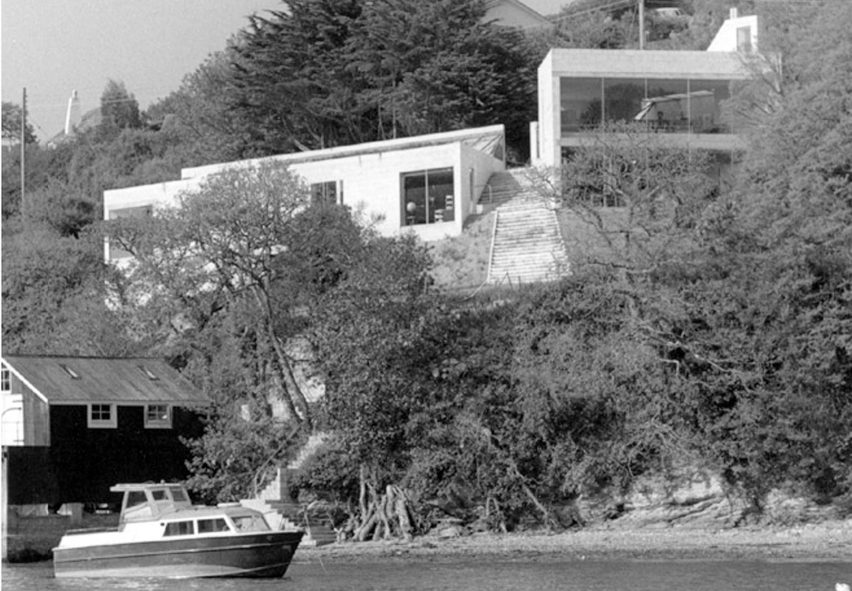
Four key projects by high-tech architecture practice Team 4
As Team 4, Su Brumwell, Richard Rogers, Wendy Cheesman and Norman Foster began to develop high-tech architecture. Continuing our series on the style we look at four key projects.
Yale School of Architecture graduates Rogers, Brumwell, Foster and Cheesman – along with Cheesman's sister Georgie Wolton, who was the only qualified architect in the group but left after several months – established Team 4 in 1963.
The studio would only complete a handful of projects before splitting in 1967, with married couple Rogers and Brumwell setting up Richard + Su Rogers Architects, and Foster and Cheesman, who by then were also married, establishing Foster Associates.
High-tech architecture is a style that emerged in the 1960s, which emphasises and celebrates structural and circulation elements. Read more about the movement in our high-tech series.
Here are four major projects Team 4 completed:
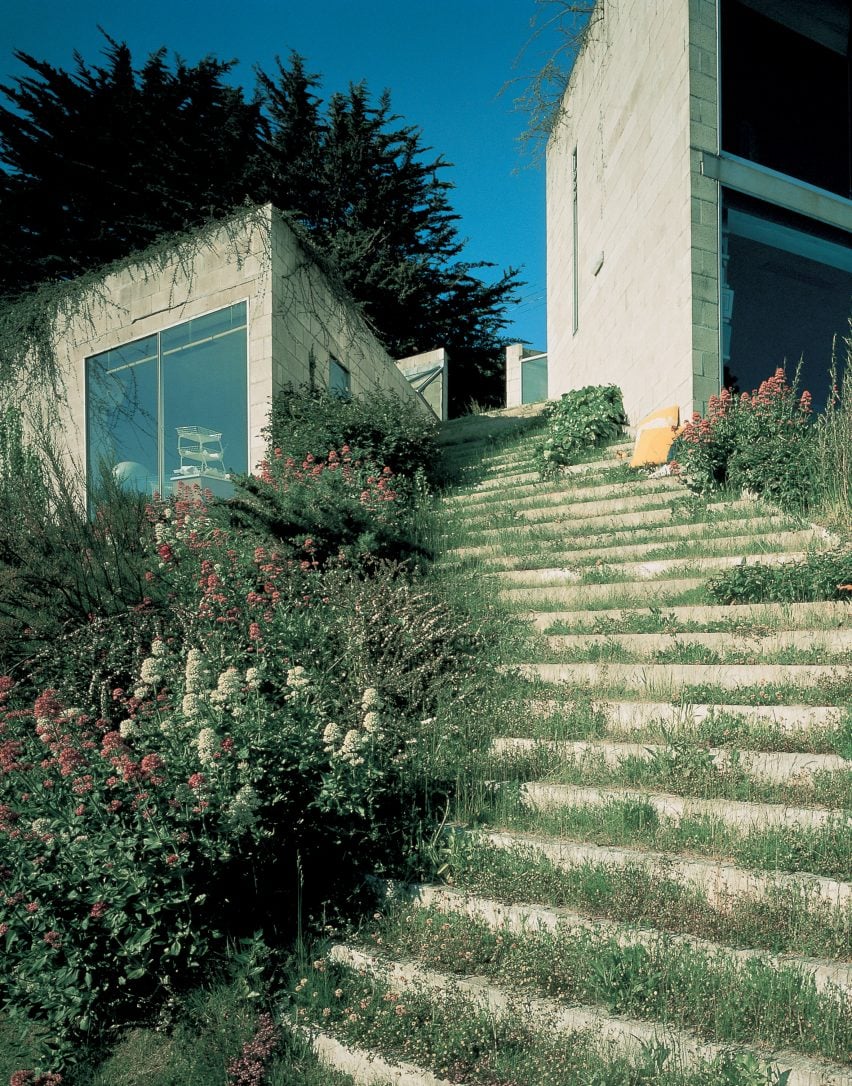
Creek Vean, 1966, Feock, Cornwall
Built for Brumwell's parents, Team 4 designed Creek Vean to be fully embedded in its cliff-side location overlooking a creek on the southern coast of Cornwall.
"The building attempts to fit more snugly into its waterfront surroundings by generating a garden on the roof," said Foster. "As this starts to become overgrown, the house will recede into its creek-side Cornish setting."
Built from honey-coloured concrete blocks, visually the house is broken into two by a flight of steps that leads from the waterside across a bridge to the drive way. Below this path the house is arranged linearly with bedrooms on one side of the path and living areas on the other, connected by a top-lit corridor.
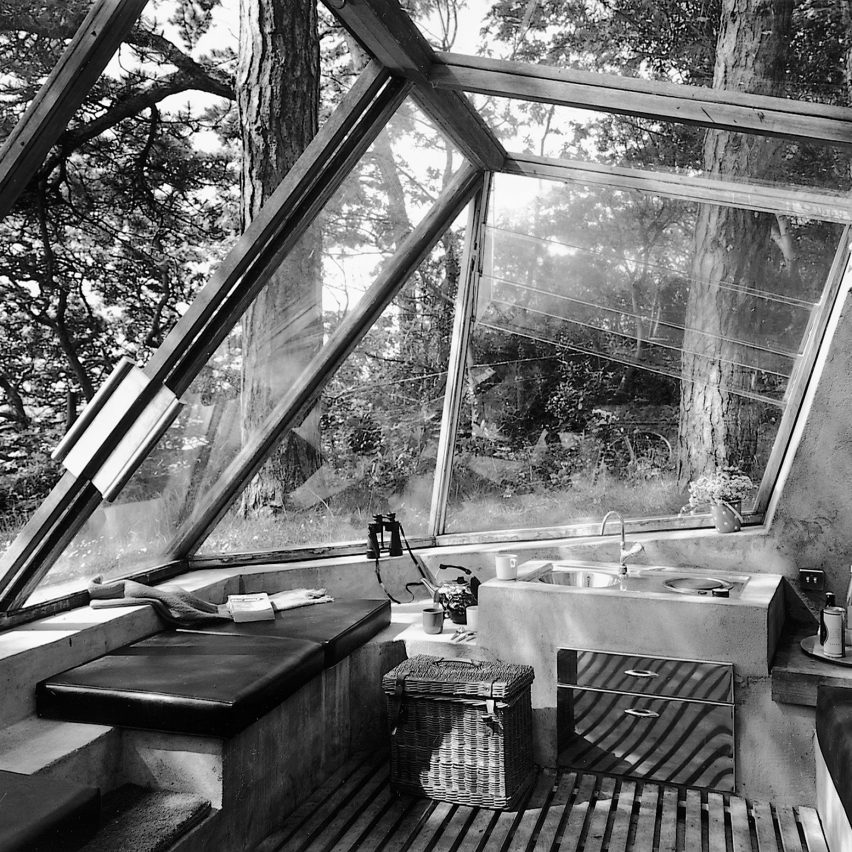
The Retreat, Creek Vean, 1966, Feock, Cornwall
The retreat was built near the house that Team 4 designed for Brumwell's parents, while that house was under construction. It was the first building completed by the studio.
Set into the ground, the cockpit-like structure has a trapezoid concrete shell, with built-in seats alongside a small kitchen including a stove. The seating area was covered by a glass canopy described as a "complex, crystalline polyhedron".
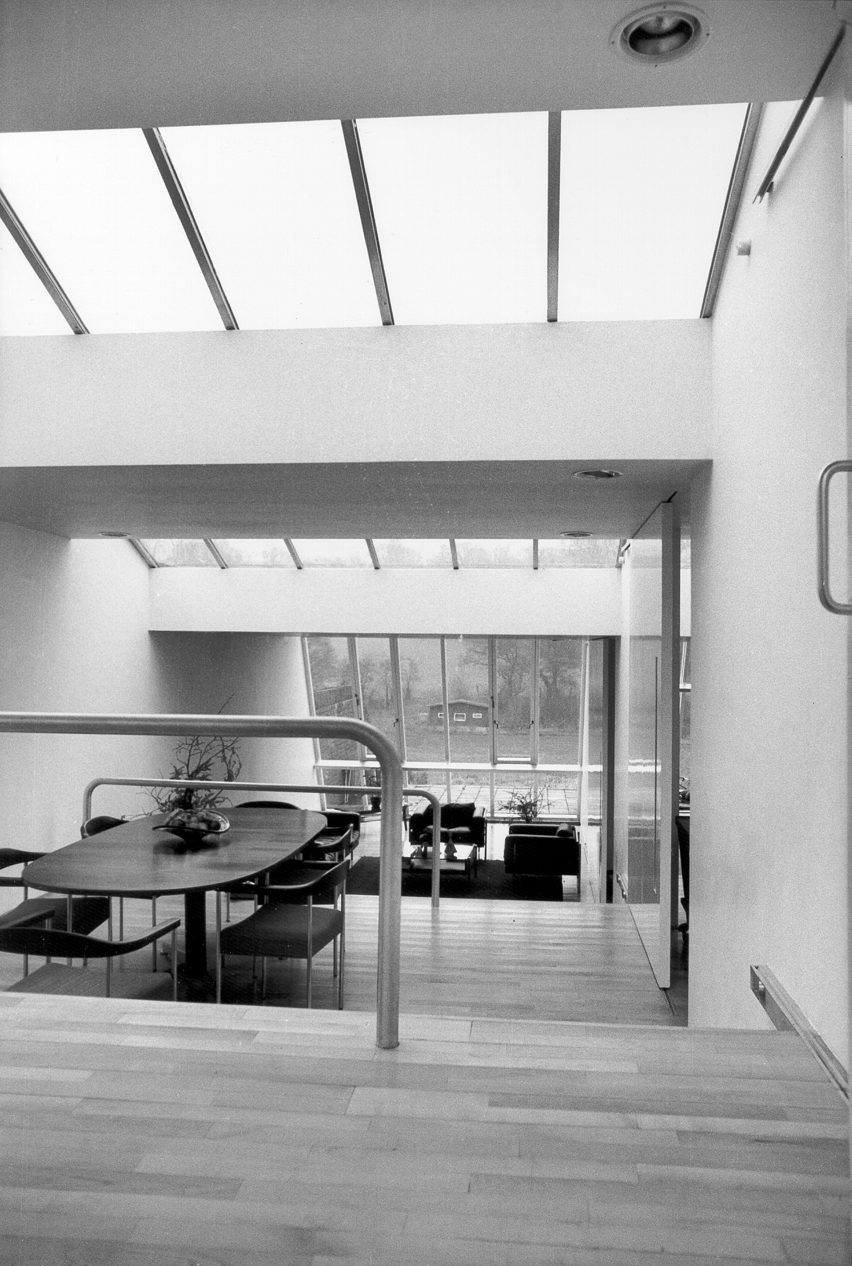
Skybreak House, 1966, Radlett, Hertfordshire
Skybreak House, also known as Jaffe House, is best known for its appearance in Stanley Kubrick's 1971 film, A Clockwork Orange.
The house, in the small town of Radlett, is split into three strips for different uses that each step down the slope that it is built on. Sliding panels divide the kitchen in the centre of the house with the living space on the western side and the bedrooms and bathrooms on the eastern side.
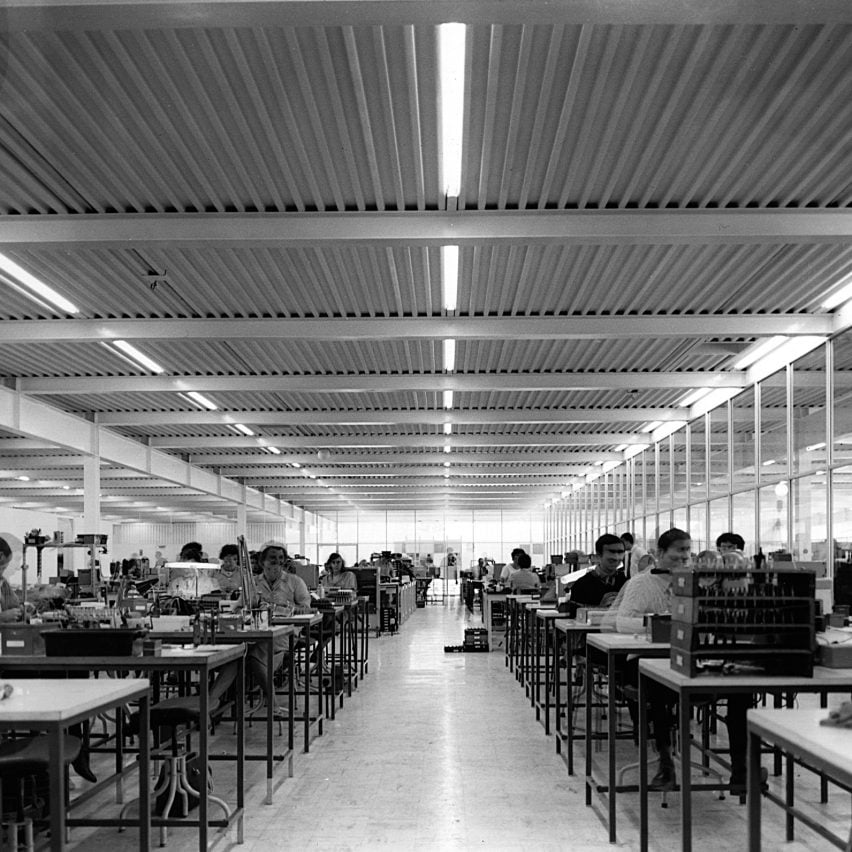
Reliance Controls, 1967, Swindon, Wiltshire
The final project completed by Team 4 – the factory and office for electronics company Reliance Controls – best demonstrates the architectural language that the Fosters and Rogerses would continue to use in their separate studios.
The first high-tech industrial building, the Reliance Controls building was built with prefabricated metal components, with its structure clearly visible throughout.